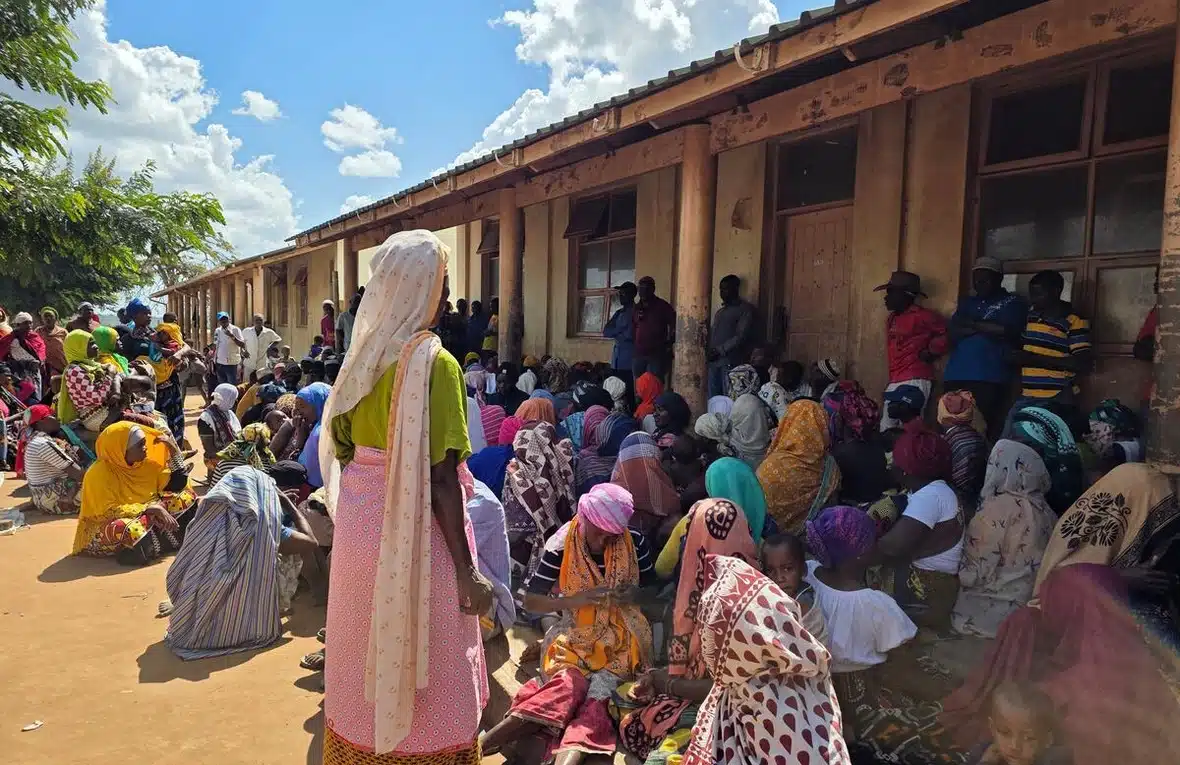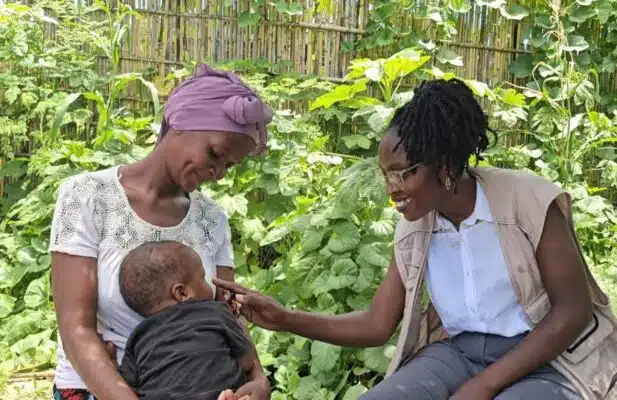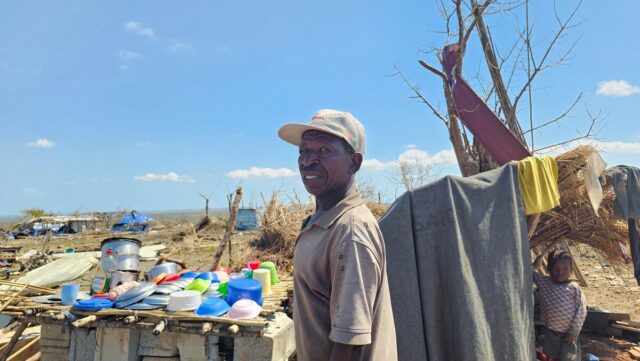
Newly displaced families from northern Cabo Delgado wait to receive assistance at a school in Macomia district on 1 October. © UNHCR/Isadora Zoni
This is a summary of what was said by UNHCR’s Mozambique Representative Xavier Creach – to whom quoted text may be attributed – at the press briefing at the Palais des Nations in Geneva.
GENEVA – UNHCR, the UN Refugee Agency, is deeply concerned at the rapidly growing displacement in northern Mozambique as a conflict that is entering its eighth year appears to be intensifying again, forcing nearly 22,000 people to flee their homes in a single week in late September.
The recent surge in violence marks a turning point in northern Mozambique. After years of uncertainty, families are reaching their limit as some stay despite the danger and others flee again with little hope of return. The new wave of displacement is among the largest recorded this year, with over 100,000 people already forced to escape.
Since the conflict began in 2017, more than 1.3 million people have been displaced, caught between insecurity, loss and repeated upheaval. For the first time since the start of the conflict, all 17 districts of Cabo Delgado – the epicentre of the conflict – have been directly affected as simultaneous attacks across the province spread fear and instability. Many of those displaced in recent days were once hosts who had opened their homes to others, and now find themselves uprooted and in need.
Concerns about safety are rising. Civilians continue to be targeted amid reports of killings, abductions and sexual violence. Children are among those most affected, with accounts of forced recruitment and deliberate attacks by non-state armed groups. Women and girls are particularly exposed to domestic and sexual violence, especially when collecting water or firewood far from displacement sites. People with disabilities and older people have struggled to flee during attacks, and some have been left behind. Many of those displaced experience deep psychological distress and urgently need psychosocial support.
During 2025, the violence has sharply accelerated. By the end of August, over 500 security incidents affecting civilians had been recorded, including raids on villages, abductions, killings of civilians, looting, and the destruction of homes and infrastructure. In 2022, considered one of the most intense periods of the conflict, 435 incidents were reported.
The crisis in northern Mozambique has evolved into one of the most complex humanitarian situations in the region. Beyond the violence, families face the combined effects of repeated cyclones, floods, and prolonged drought. Livelihoods have been destroyed, food prices are rising, and basic services are scarce. The compounding impacts of conflict and climate-related shocks have created a cycle of vulnerability that is increasingly difficult to break.
Despite a squeeze on funding globally, UNHCR and partners continue to support displaced populations and host communities across northern Mozambique. Help desks have been established to identify individuals with specific needs, provide counselling and mental health support, distribute dignity kits and mobility devices, and assist families in replacing lost civil documents in coordination with local authorities. However, with only $66 million received of $352 million required this year, our capacity remains stretched just as needs rise.
Eight years on, the recent surge in violence is a stark reminder that the crisis in northern Mozambique is far from over. Thousands of families have been displaced for years, rebuilding homes only to lose them again. UNHCR calls on the international community to renew its support for Mozambique. Protecting civilians, restoring access to essential services and investing in long-term solutions are urgently needed to prevent further suffering.
For more information, please contact:
- In Pemba, Isadora Zoni, schulerz@unhcr.org, +258 84 430 1425
- In Pretoria (regional), Duniya Aslam Khan, khand@unhcr.org, +27 84 585 720
- In Geneva, Eujin Byun, byun@unhcr.org, +41 79 747 8719
Originally published by UNHCR on 7 October 2025





